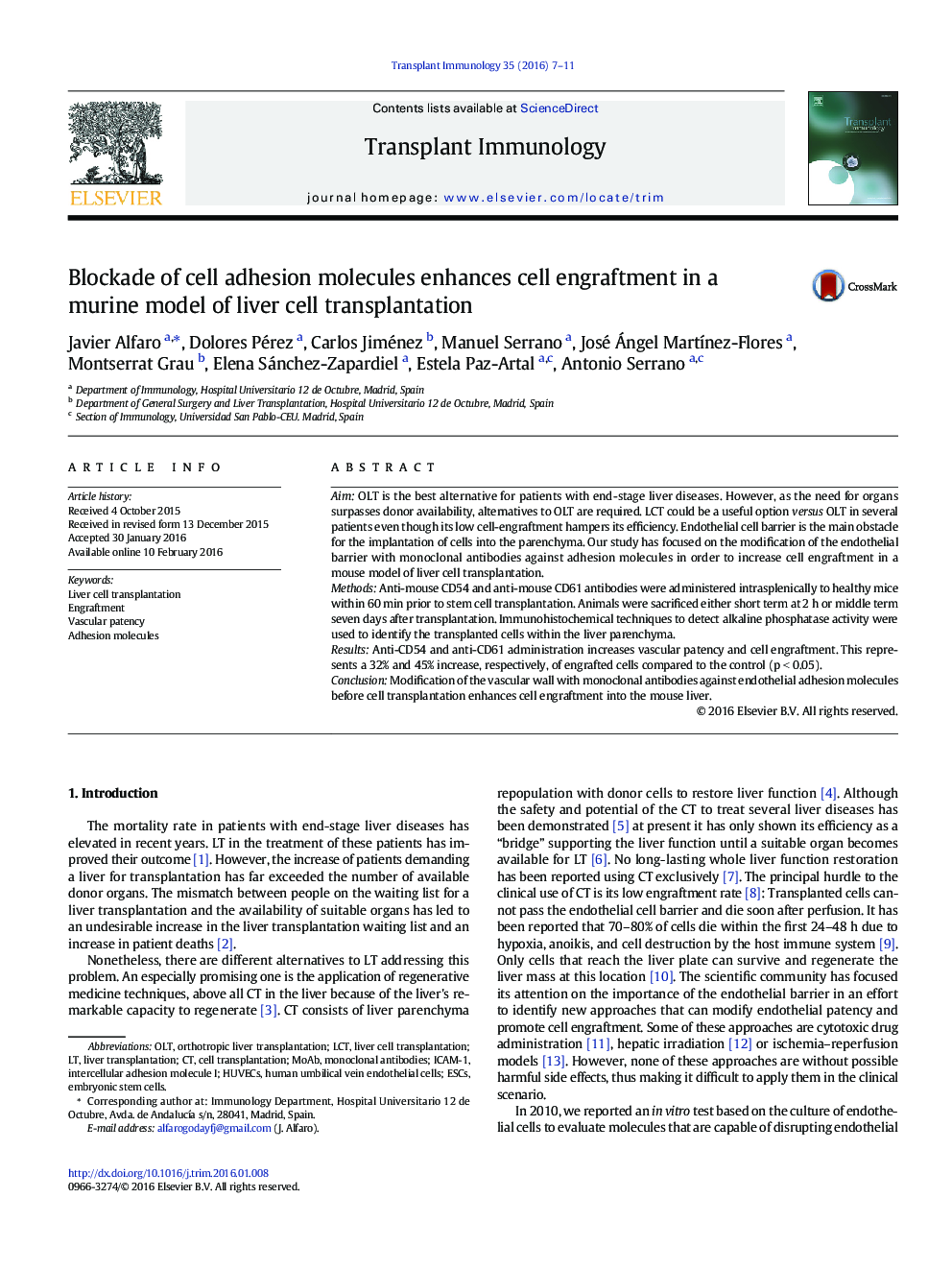| Article ID | Journal | Published Year | Pages | File Type |
|---|---|---|---|---|
| 3392010 | Transplant Immunology | 2016 | 5 Pages |
•A discussion is provided on the adhesion molecular blockade effects on endothelial patency in vitro culture of HUVECs cells.•Result One: Anti-CD54 and anti-CD61 administration increases vascular patency.•Result Two: Modification the liver endothelium with monoclonal antibodies improves cell engraftment into the mouse liver.
AimOLT is the best alternative for patients with end-stage liver diseases. However, as the need for organs surpasses donor availability, alternatives to OLT are required. LCT could be a useful option versus OLT in several patients even though its low cell-engraftment hampers its efficiency. Endothelial cell barrier is the main obstacle for the implantation of cells into the parenchyma. Our study has focused on the modification of the endothelial barrier with monoclonal antibodies against adhesion molecules in order to increase cell engraftment in a mouse model of liver cell transplantation.MethodsAnti-mouse CD54 and anti-mouse CD61 antibodies were administered intrasplenically to healthy mice within 60 min prior to stem cell transplantation. Animals were sacrificed either short term at 2 h or middle term seven days after transplantation. Immunohistochemical techniques to detect alkaline phosphatase activity were used to identify the transplanted cells within the liver parenchyma.ResultsAnti-CD54 and anti-CD61 administration increases vascular patency and cell engraftment. This represents a 32% and 45% increase, respectively, of engrafted cells compared to the control (p < 0.05).ConclusionModification of the vascular wall with monoclonal antibodies against endothelial adhesion molecules before cell transplantation enhances cell engraftment into the mouse liver.
